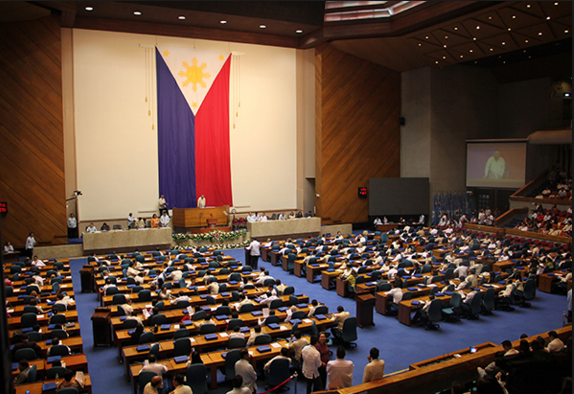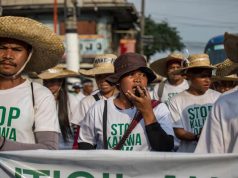MANILA, Philippines – While the government is certain to collect additional revenues from the proposed tax reform package, the returns to the people through a vaunted social benefit program remains vague, opposition lawmakers said Tuesday.
Albay Representative Edcel Lagman and Ifugao Rep. Teddy Baguilat observed that House Bill 5636, called the Tax Reform for Acceleration and Inclusion (formerly Comprehensive Tax Reform Package), did not contain the specific details of the social protection program, especially for the poor, who would be hit hard by the price increases once the new taxes set in.
On Tuesday, the bill was sponsored on the floor signaling the start of plenary debates. The House leadership targets to pass it on third and final reading by the last day of session on May 31.
The last portion of the 59-page bill mentioned the “earmarking of incremental revenues” from the TRAIN bill, which would be given through a social benefit card to be made available to needy families, who will receive at least P3,000 per year for every household in the next three years.
“For three years, not more than 40 percent of the yearly incremental revenues generated from the petroleum excise tax …shall be allocated to fund a social benefits program wherein qualified beneficiaries shall be provided a social benefit card,” the bill said.
“Likewise, allocation for granting fuel vouchers to qualified transport franchise holders shall be sourced from the same incremental revenue,” it said, adding that an inter-agency committee composed of several departments would be created to implement the program.
The remaining yearly incremental revenues will be allocated for infrastructure, health, education and social protection expenditures.
“The bill should have specific provisions on the linkage between the incremental revenues and the social benefits to the people, but these are all motherhood statements,” Lagman said.
He said the mention of the social benefit card in the bill without the details was not enough.
‘Vague provisions’
“We could not possibly extrapolate from those vague provisions, who are qualified, how much will be given, what is the frequency of disbursement, there’s none,” he said.
Lagman also noted that the provision changed the wordings in the original version of the bill, which stated that 40 percent of the revenues from petroleum products will be used for the social benefit card. However, the bill submitted in plenary now stated that the amount to be allocated would be “not more than 40 percent.”
“It could be one percent or two percent. The proper terminology should be ‘not less than’ 40 percent,” Lagman said.
“Once the bill passes in its present form, you’re going to give the Department of Finance an unlimited ambit of authority to provide for what is missing in the law, and that cannot be done in the IRR (implementing rules and regulations),” he added.
‘Don’t rush bill’
Baguilat said the bill should be discussed thoroughly in plenary and should not be rushed.
“The leadership cannot impose deadlines, there should be sufficient discussions,” he said.
In a separate news conference, Anakpawis partylist Rep. Ariel Casilao said the process and discretion of disbursing the funds could be subject to abuse by persons in authority.
“These subsidies, according to our research and computation, will not have that big relief on the people who will be affected by the general increase in prices of goods and services,” he said.
The TRAIN bill boasts of lowering the personal income tax, but would impose higher excise tax on petroleum products. Under the current bill, the increase in excise tax will result in a P3 per liter increase in prices of gasoline and diesel on the first year of implementation, which is targeted in 2018; P2 per liter in 2019; and, P1 per liter in 2020.
The bill will also lift the VAT (value added tax) exemptions on various services and goods, including cooperatives, a proposal being opposed by the sector.
On Tuesday, 47 congressmen from the Partylist Coalition Foundation Inc. signed a manifesto seeing the retention of the exemption currently being enjoyed by cooperatives.
“While we support the proposed bill, we hope that in the creation of a simpler, fairer and more efficient tax system, the same shall remain true to being a social justice measure and shall result [in] inclusive growth, without forsaking the lives of millions of the Filipino people who have come to depend on these cooperatives,” the coalition said.
Click and watch the video report below:










